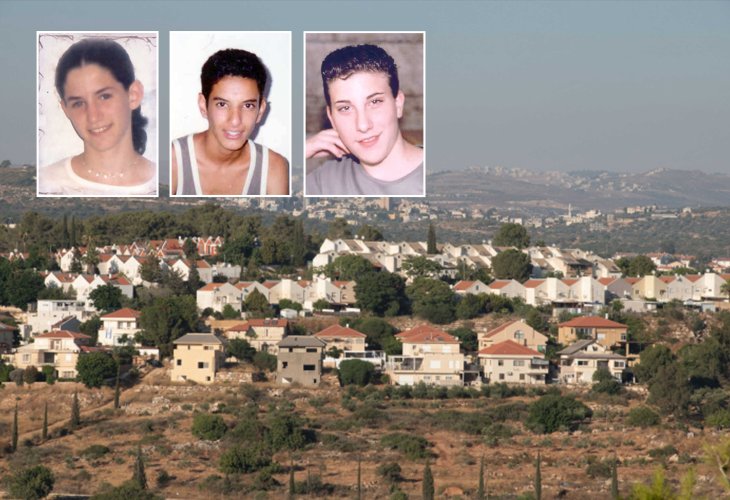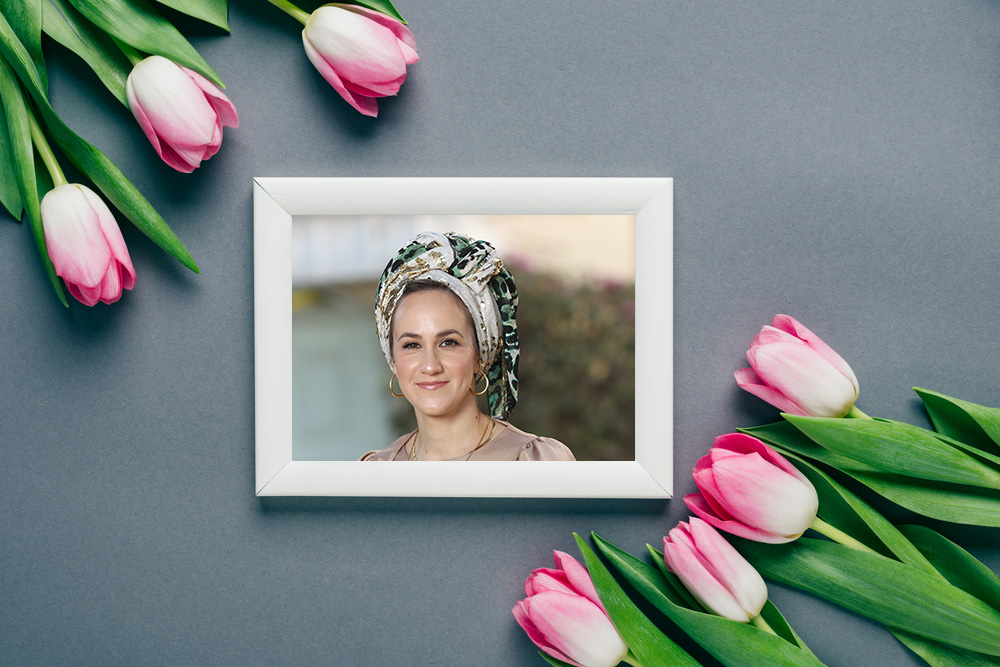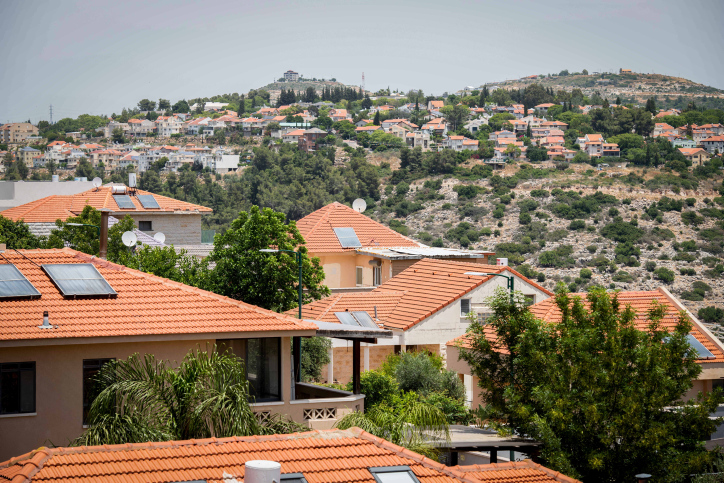"We Haven't Forgotten Our Friends, and After 20 Years We've Decided to Commemorate Them"
Naava Raphaeli and her friends cannot forget the day a suicide bomber appeared, blew himself up within a group of teenagers, and killed two of their friends and a peer. Now they are launching a unique initiative that connects all segments of the population in the country.
 (Photo: Sharya Diamant / Flash 90)
(Photo: Sharya Diamant / Flash 90)Naava Raphaeli is a 35-year-old woman, a mother of five, and holds a senior managerial position in the field of business development. Nevertheless, she finds herself often returning to the ninth grade, when she was barely 15, and experienced one of the most traumatic moments of her life.
"When I Heard the 'Boom', I Knew Immediately"
Naava lived with her family in the settlement of Ginat Shomron in Samaria, during the days of the Second Intifada, remembered by all as a terrible period with many severe attacks across the country. "And then it reached us," describes Naava. "On a Saturday night at the beginning of Adar, a suicide bomber came to the shopping center in our settlement where I lived and exploded with a bomb at the shopping center which was our regular meeting place as teenagers, right next to the pizza shop."
 Naava Raphaeli
Naava Raphaeli"I was on my way there, but thank *Hashem* I didn't arrive in time. The bomber, as I later understood, came to the place where my friends were, apparently stood on a table right next to them, and blew himself up. Instantly, my childhood friend Keren Shatzki z"l was killed, along with a boy my age, Nehemiah Amar z"l. Many friends were injured, including Rachel Teller, who was seriously injured and passed away a week later from her wounds."
Naava, as mentioned, did not make it to the location in time but heard the explosion clearly. "My house wasn't particularly close to the shopping center, yet we heard the loud 'boom' and immediately realized it was a terror attack and that it happened within our settlement. I called Keren's house, my best friend, and her mother burst into tears and said that Keren had gone to the pizza place. That night we became aware of the enormity of the tragedy, and I remember it as a terrible break, incomprehensible or understandable. I was only fifteen at the time, an age where it's very difficult to process death. For me and my friends, it was the first time facing death so closely. Our processing was, in some sense, very childish and shallow. I had friends who often went to the cemetery, released balloons on the friends' birthdays, and really struggled to grasp and understand the deep meaning. Today, when I look back, I know the severe trauma followed us throughout our adolescence, and it is something that, when discussing attacks, is not always acknowledged. There's always the closest circle to the murdered, absorbing the tragedy in the hardest way. But there's also the second and third circles that might be further away, yet they are affected and have to cope. Dealing with death has no expiration date, even now, as I have a son almost the age we were, I still recall the friends who were murdered and shed a tear."
Naava adds, "We all felt the strong desire to commemorate them. Some friends named their daughters after Rachel and Keren. Though not using the full name, they chose names that remind and honor our friends' memories. It wasn't suitable for me, but for years I felt the circle hadn't closed, and I had a strong feeling I wanted to do something bigger. I'm not a mystical person and don't believe in operating according to such things, but a few years ago I dreamed about my friend and woke up very troubled, thinking that more needed to be done for the memory and commemoration of our friends. That day I sent a WhatsApp message to my childhood friends' group suggesting we might need to do something more. A discussion began between us, and it was decided that for that Shabbat we would organize a *hafrashat challah* in memory of the three murdered. Meanwhile, some friends contacted the council head in Ginat Shomron and decided to inaugurate a new playground named after them. Yet, I still felt I was seeking something more sacred to do in their memory.
"I continued consulting with my friends, and then the idea arose to leverage technology to create a website enabling social gatherings for good causes in holiness. Since I come from the world of development and information systems, I understand the field, and I know how much broad distribution can lead to vast impact."
"From here, things continued to develop, and we decided to establish a website that allows for organized group formation for *hafrashat challah*. We're all familiar with the emails and WhatsApp messages often circulated with the wording: 'If you can separate challah, please contact...' and we felt it was very primitive, inconvenient, and cumbersome. We decided that on our website, it would be possible to set up a challah separation group at the click of a button, specifying the purpose, whether it's a match, healing, success, etc. After establishing the group, a digital link is provided, which can be shared further, and anyone registering through the link is updated automatically on the site. Additionally, we added the option to send a reminder on the day of the separation, which is automatically sent to each registrant."
"We Haven't Forgotten"
Naava notes that because it was essential for them that the site be of high quality with a user-friendly interface, they approached a very professional software house that built a unique system for them, which started operating about a year ago. "Initially, we were in a trial stage, and in recent months our activity is flowing, and there are also famous network figures who heard about the initiative and started to promote it with their tools, like the amazing Eden Harel. It's incredible to see the rallying for spreading the idea and the massive connection women feel towards it. Sometimes women tell me they separate challah specifically to join our groups, and the most special thing is that these are women coming from all segments of the population, from secular with a slight touch of Judaism to ultra-Orthodox 'plus-plus.' This site is suitable for everyone and creates connection and unity. As soon as a group is formed, all participants receive a message 'We reached the goal,' which is very unifying and connecting."
Naava mentions that after witnessing such great success in *hafrashat challah*, she and her friends realized they could create many more additional rubrics in the same way. "In the next stage, we created a rubric for reading Shir Hashirim and even for reading 'Psalm of Thanksgiving'," she details. "The group formation technique is identical, but rather than being a one-time participation, women gather together for forty days, and they receive daily reminders for this."
As someone exposed to behind-the-scenes data of the site, Naava says she sees the segmentation and is excited each time by the understanding that accesses to the site come from all over the world. "We have entries from Jordan, Egypt, Holland, Germany, even India, and the Philippines. Various places worldwide where Jews are, possibly on missions, traveling, or as part of their work, but they are exposed to us, receive our links, and join the groups. Just recently, we had some groups that really surprised us all when they recruited hundreds of participants within days. In one instance, it was for a child with cancer, and it was deeply moving to see the vast response. Another case involved a very serious accident on Independence Day, where a family from the settlement of Nokdim was hurt and their baby son killed. Even there, we were surprised by the swift organization when within hours there was already a group of hundreds participating in *hafrashat challah*, it was truly incredible."
 (Photo: Sharya Diamant / Flash 90)
(Photo: Sharya Diamant / Flash 90)Naava adds that they decided to name the site 'Alumot', suggested by one of their childhood friends. "We felt that this name holds two meanings, as an 'Alumah' is a beam of light, connecting to the names of the murdered whose initials are KRN - Keren, Rachel, and Nehemiah. Additionally, an 'Alumah' is also a type of sheaf, a gathering, as our aim is to gather and add light and goodness. By the way, when searching for the site, it should be typed as 'Alumot hafrashat challah', different from other organizations with similar names."
Do the families of the victims know about the website you created?
"Of course, we involved them from the planning stages, and they also contributed to support our setup costs, which were high and reached a significant amount. Mainly, I think they are touched. One of the difficulties for those who lost a child is seeing the friends continue with life while their child does not. I believe that knowing the family sees us doing something for the elevation of their children's souls, and not forgetting, also eases this aspect. Indeed, we have not forgotten, this pain continues to accompany us always, and despite the difficulty and sadness, I am glad we managed to lead something that will be for the elevation of their souls."

